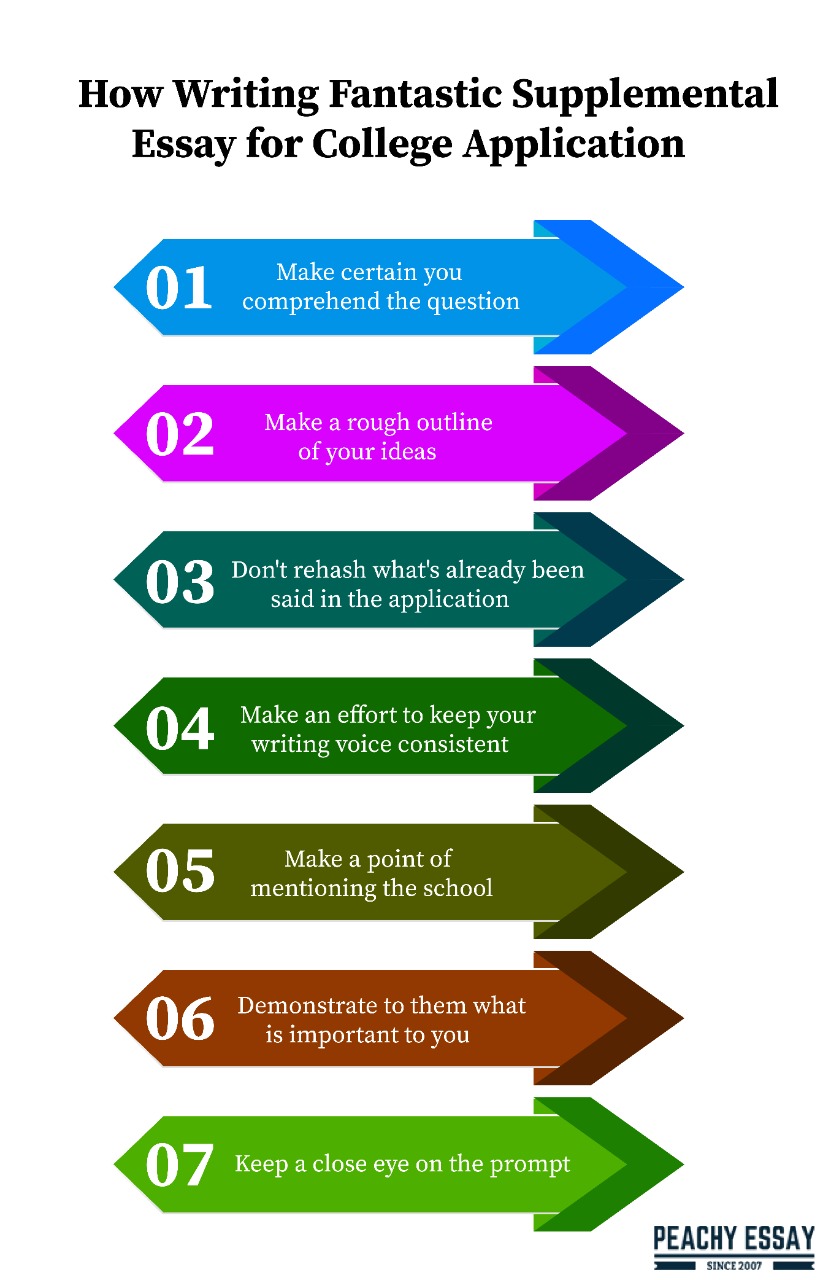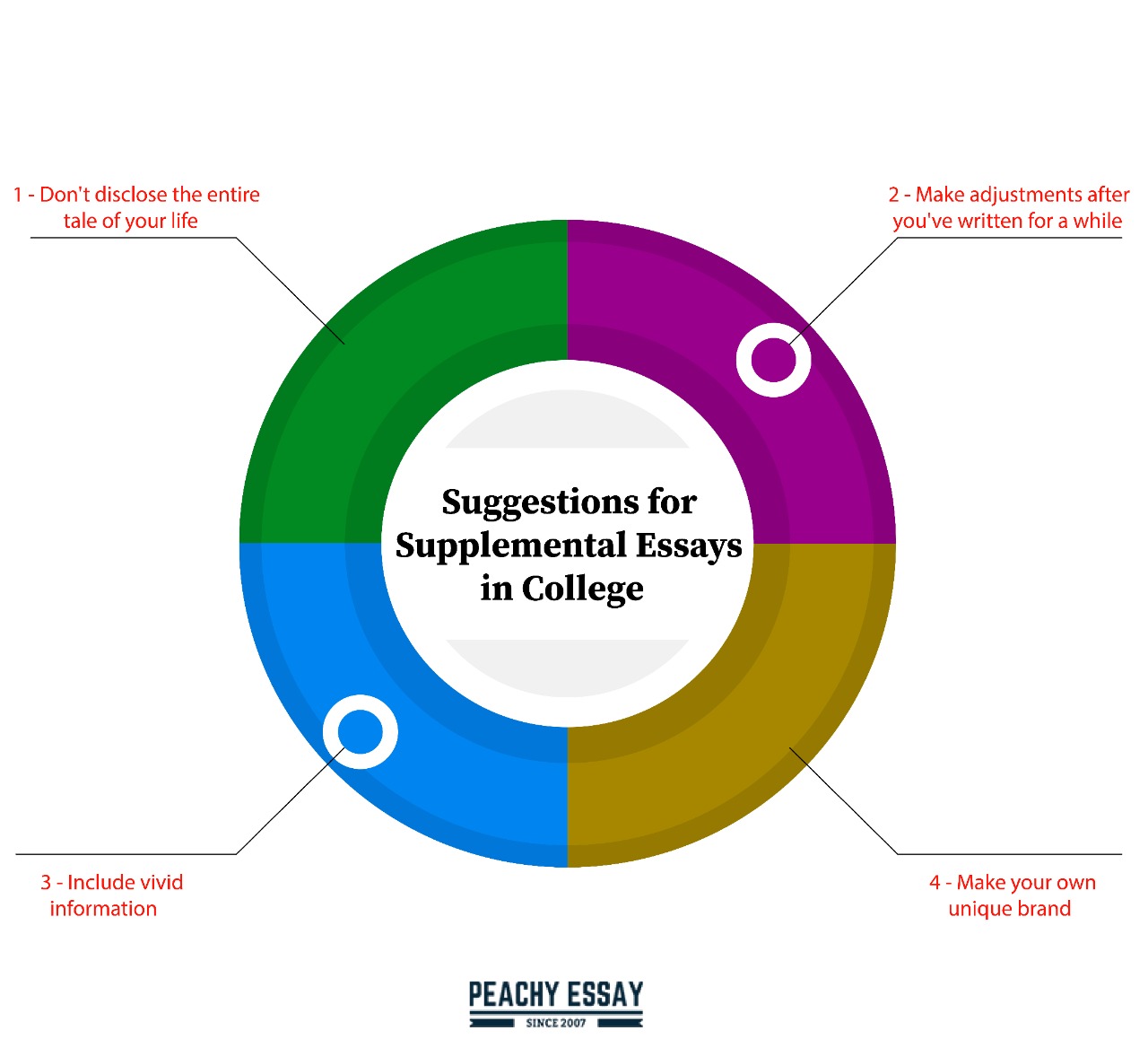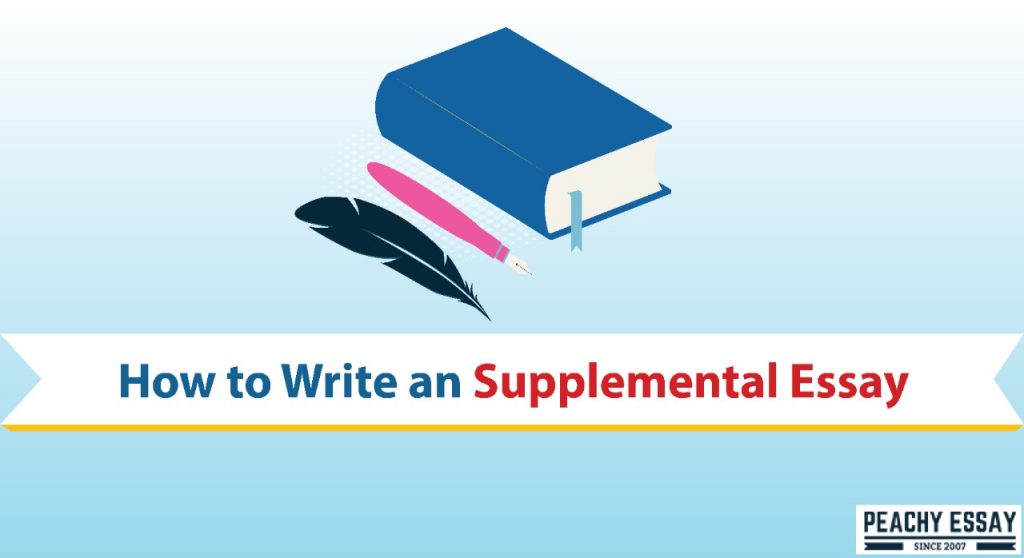One of the most crucial aspects of the college application, aside from grades, standardized test scores, and high school courses, is the essay. While both the Common Application and the Universal Application need an essay, many institutions also demand writing supplements, which are school-specific essays.
Supplemental essays allow admissions officers to get to know applicants better, and they also serve as good indicators of proven interest. So, how can people improve their college entrance essay writing skills? This post will teach you how to compose a supplementary essay in great detail.
What is the Purpose of a Supplementary Essay?
The supplemental essay, also known as the common application essay, is an opportunity for you to tell the college admissions committee something about yourself that you couldn’t communicate in the main essay. In addition to the primary essay, some colleges ask for a supplemental writing sample. Students can either submit a sample of their high school writing or choose one of the authorized prompts given on the school’s application form.
How Long Should a Supplemental Essay Be?
A supplemental essay is generally significantly shorter than the main essay, ranging from 150 to 250 words in length. Students should constantly be conscious of the word limit, just as they should be for the main essay, or risk receiving a lesser grade on their admissions report. Students should have no issue modifying their work to fit under the word restriction because the essay may be produced many weeks before the application is due.
The Purpose of Supplemental Essays
Supplemental essays are an opportunity for a PA program to question you about significant topics but may not be to other programs. Most of what schools read in your application will appeal to a broad audience, while supplementals focus on what specific programs value. Your replies will aid the program in determining if you are a suitable fit for their program and merit an interview.
When it comes to scoring your total application, your replies to a school’s supplementals will be considered. This implies you should expect to be asked to additional interviews if you do a good job on them. If you do a poor job on them, you may have to apply for another year.
How to Write a College Supplemental Essay
The five-step procedure shown here is simple to follow and will have you well on your way to writing a fantastic supplemental essay for your college application. Start early to give yourself plenty of time to review, edit, and proofread. Don’t be afraid to solicit feedback from others. You might easily overlook little errors that might work against you. Therefore it’s essential to have a second set of eyes go over your work.

Make certain you comprehend the question
The finest supplemental essay replies will directly answer the prompt without deviating. This isn’t an exam, so don’t feel obligated to respond within a certain amount of time. To ensure that you answer the question appropriately, make sure you grasp what the essay prompt is asking.
Make a rough outline of your ideas
Because of the word restriction we’ve discussed throughout this post, you should be aware that you won’t be able to go into every element of the prompt you chose. Spend some time thinking and then writing down your greatest ideas in an outline. This will assist you in drafting the initial draft.
Don’t rehash what’s already been said in the application
Students frequently make the mistake of repeating information from their college applications, such as GPA, test scores, extracurricular activities, and so on. Use this occasion to tell the admissions committee something about yourself that they don’t know.
Make an effort to keep your writing voice consistent
When too many people read your work (for example, counselors, instructors, parents, etc. ), they may provide too much feedback, causing your writing voice to shift and undermine your essay. It’s fantastic to provide advice, but make sure you keep your own voice.
Make a point of mentioning the school
Every school-specific essay has a subtext: why are you a good fit for our campus? As a result, regardless of the question, you should find methods to describe specific areas of the school that excite you, relate to previous work you’ve done, or to which you have some other relationship. Admissions authorities will not be pleased with you if they can detect you copied and pasted an essay from another school into their box.
If an essay asks why you want to attend X University, discuss the academic and social activities you want to pursue there. Mention classes, labs, teachers, and research possibilities if it asks what you want to major in. Use a particular example to explain how you’ll continue working in college if it asks about a noteworthy extracurricular activity. You’re doing it incorrectly if you’re not talking about resources that are specific to that school.
Yes, this will need some investigation! But it will be worth it since an admissions officer will be able to visualize you on campus after reading a deliberately specified extra essay, and they will appreciate what they see. That’s how you get into the “Yes” pile.
Demonstrate to them what is important to you
Supplemental college essay themes can range from the mundane (explain why you want to attend our institution) to the bizarre (would you like to be reared by robots or dinosaurs?). No matter what they ask, the goal of these essays is to assist admissions officers in getting to know you better. So, before coming up with a response, consider this: what do I want people to know about me?
Of course, your ability to communicate will be determined by the prompt. Take great care, especially with the more unusual questions, to consider what you want to say about yourself. Admissions officers only spend a few minutes with your application in practice, so you must explain your story clearly and concisely. If you choose prompts, select one(s) that will allow you to showcase a fresh and important aspect of yourself.
It would be best if you also considered what else is in your application. To avoid boring your reader, if your personal statement concentrates on a specific event, you should avoid returning to that issue in a school-specific essay.
Keep a close eye on the prompt
Because additional essay questions are frequently repeated in schools, it might be tempting to utilize the same essay again. This impulse must be resisted! Colleges spend a lot of time deciding what questions to ask in their extra essay prompts, and they truly want you to put thought into your responses. Pay close attention to the instructions and consider your options carefully.
Even the simplest of school-specific essays are subject to this rule. Some institutions want a thirty- or fifty-word response, with some asking for as few as three words! They may also want a list of recent books or films you’ve viewed. Give these micro-essays the same amount of consideration as the lengthier supplemental pieces. If schools make you respond, it shows they are interested in what you have to say. Think about how each statement affects you.
We sometimes talk about “the question behind the question” while helping kids prepare for college interviews. That example may appear basic on the surface, but it is evident that the interviewer is referring to something bigger. Supplementary essays are treated in the same way. Regardless of how dull or weird the subject is, consider this: what are they truly trying to learn with this prompt?
Tips for Supplemental Essays in College
The procedures outlined above should help you produce an excellent essay, but we believe these bonus essay suggestions can help you stand out from the crowd.

Don’t disclose the entire tale of your life
Many students make an effort to condense their whole lives into a few hundred words. Keep in mind that you are only answering one question. What I should write in my extra essay should be focused and direct.
Make adjustments after you’ve written for a while
This piece of advice applies to all types of academic and professional writing. Starting with free writing is usually a good idea. This is the first draft; therefore, there will be a lot of mistakes. Make your revisions afterward once you’ve written down all of your thoughts.
Include vivid information
Are you able to distinguish between these two sentences? “Playing soccer with my pals is my favorite summer activity.” Against, “Every day, my buddies and I get up before dawn to catch a whiff of the summer grass before going head-to-head in our favorite soccer.” The second employs details to build a picture, whereas the first doesn’t hold the reader’s attention nearly as well.
Make your own unique brand
People who are reading your essay should be able, to sum up, your topic in one line. This is what branding entails. Returning to your primary argument with one or two words that bring your issue to a close is how to finish a supplemental essay.
This will stick in the reader’s memory and distinguish you from the competition.
Common College Essay Types
Colleges will pose a question in a hundred different ways, but the prompt will usually come down to one of the following frequent essay themes.
Why did you choose this college?
The most common blunder made by students when asked, “Why this college?” The essay lacks specificity; for example, some students will include characteristics that may be applied to several institutions, which you should avoid at all costs.
When writing a “Why this college?” essay, you should focus on the school’s unique characteristics and offerings. However, simply listing or mentioning a name isn’t enough.
Instead, discuss why this object is significant to you.
Mention the college’s unique programs and resources, and demonstrate how you would take advantage of them. Furthermore, the response should exude passion and drive, including your personality characteristics, while remaining focused on the challenge.
Here’s an example:
As somebody who has enjoyed writing and is developing an interest in business, I was thrilled to find a major metropolitan university like the University of Southern California that would allow me to pursue both. From classes with award-winning authors like Professor T. Boyle, whose environmental fiction works are similar to those I hope to publish someday, to clubs like the Cosmic Writers Club, which brings together aspiring authors, USC provides more resources than I could use my quest to publish my first book.
On the commercial side, USC is recognized for cultivating the creativity and ingenuity required to launch a startup. I was especially delighted to read about the Incubate USC program, a one-of-a-kind mothership of ideas that fosters student innovation. I would be able to explore my developing interest in start-up companies with the support of this program.
Why this major?
Admitting officers are not searching for a résumé is one of the most crucial things to remember. This isn’t to suggest you can’t talk about your extracurricular activities and how they led to a desire for a certain degree. The trick is to use these activities to tell a story rather than just a list of accomplishments.
How do you go about doing this? Share your thought processes with the group. It is often the reader’s path to choosing a major that is shown through the reader’s thoughts around activity rather than the activity itself.
Never claim that the money-making potential of a major was a factor in your decision. If you want to include life beyond college, talk about how this major will help you reach your ambitions. Say that you want to make a feature film and that a film major will help you get there. But don’t state your ambition is to become a successful film producer.
Are you undeclared? That’s just OK. Just make a list of a few possible majors and explain why you’re interested in them. Under no circumstances should you state you have no idea since this will make you appear uninterested.
Elaborate on an extracurricular activity or work experience
Is there an activity or job experience in your application about which you would want to expand? Perhaps there’s a backstory behind it that you’d want to share. Consider the following questions:
What drew you to this extracurricular activity?
What part of the activity or job experience do you play?
What motivates you to accomplish it?
Have you noticed any progress in the activities over time?
You may use several approaches here, but in general, your essay should demonstrate your reason for participation in a certain activity or employment.
What you don’t want to do is merely restate something that has already been expressed. If you’ve already highlighted an activity in another essay for a certain college, don’t mention it again. Here, your purpose is to share new knowledge as well as your diverse range of experiences.
It’s more effective to tell a tale to the reader than to describe the activity itself, much as it is with the “Why Major?” prompt.
Discuss a community you belong to that has impacted who you are today
Because “community” may represent many different things, there are a lot of different ways to approach this challenge. Some candidates mention a community to which they are connected through culture, while others mention sports or a club.
Personal growth—or other parts of who you are as a person—that has resulted from belonging to this group is one thing you might stress. The majority of your essay should focus on how being a member of this organization has influenced or affected who you are as a person.
What to stay away from:
In your response, don’t make any assumptions about other groups.
Instead of talking about your community in broad terms, concentrate on your place within it.
Do not use the essay as an opportunity to vent. Find a means to give your article a feeling of closure if you wish to discuss issues in a specific neighborhood. This might include discussing how you’ve evolved as a person or learned how to deal with these challenges in a beneficial manner.
Tips for Writing Supplemental Essays
Start planning early for your personal statement. Many students spend their summer and senior fall composing their personal statements. After all, your personal statement is one of the most crucial components of your application. To create an effective college essay, you must devote time and effort.
Determine the particular question posed by the prompt
Many additional essay prompts are narrowly focused, while others are wide. Regardless, figure out what the prompt is asking for. Because supplemental essays are usually shorter than personal statements, it’s critical to write an on-topic answer.
Consider what college admissions officers are searching for while answering various inquiries.
Do they want to know about your service experience, for example? What is your natural inclination? As a scholar, what do you have to offer? What is your true voice? What makes you think this college is a good fit for you? and so on.
Be succinct
Many of your additional essays will most likely run out of space. For example, three of Princeton’s essays have a 50-word limit.
As a result, candidates must be succinct in their replies. Every every phrase should be crucial. Remove the fluff, and don’t be scared to go in (just as we advise our students to do with their college essays).
Choose things that you haven’t covered in your application
This may seem self-evident, but it is nevertheless critical.
Consider your whole application, including your personal statement and the aspects of yourself that you haven’t yet addressed. What else do you want to emphasize, especially when it comes to extra essay prompts that are quite broad?
Take a look at all of the following topics.
- Personal difficulties
- Values and convictions
- Volunteering or employment experience in a given field
- A worthwhile occupation or pastime
- Your hobbies and passions
- What piques your interest?
- Your distinctive personality
This is why additional essays exist in the first place. Beyond your personal statement, transcripts, letters of recommendation, and test scores, they want to learn more about you as a candidate. Make careful to choose the information that isn’t completely visible or detailed in the rest of your application.
Consider the college’s mission statement
This is especially important for extra essays that ask students why they want to apply to that particular school or how they see that institution assisting them in achieving their goals.
The mission statements of colleges are typically extensive. However, they do capture the college’s aims and basic beliefs, which might be useful to mention in a “Why X College” essay response.




